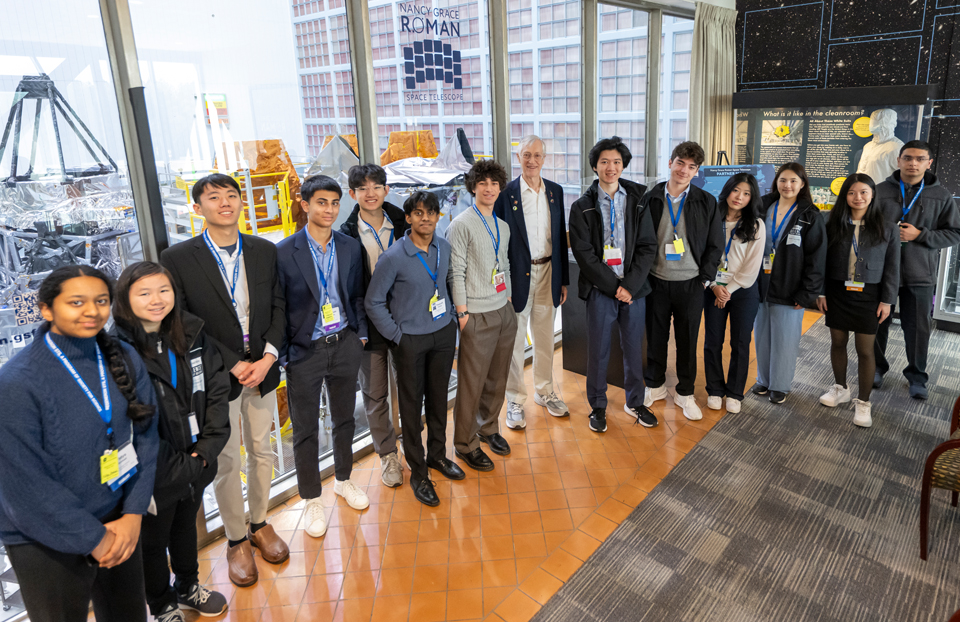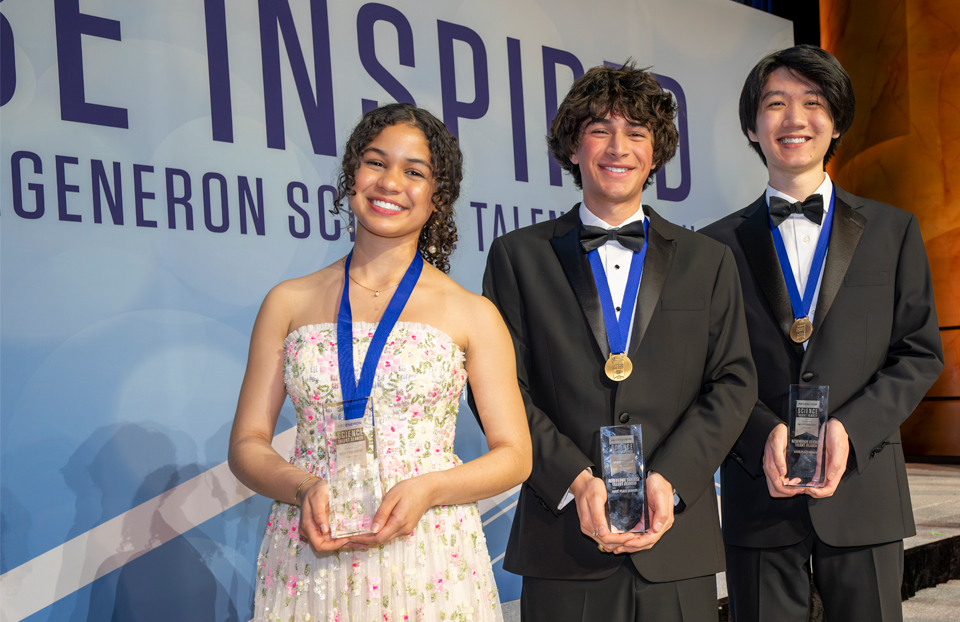Five questions with Regeneron Science Talent Search 9th place winner, Vincent Huang
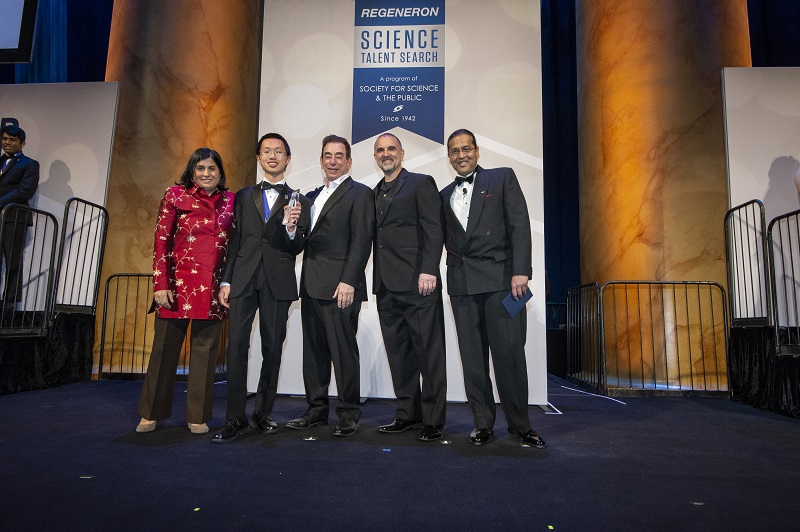
During finals week of the Regeneron Science Talent Search, 40 of the brightest, young scientific minds in the nation traveled to Washington D.C. to showcase their scientific projects to the public. We asked the top 10 winners a variety of questions to learn more about their projects, competition experience and plans for the future. Here is some of what Vincent Huang, 18, a high school senior from Plano, Texas, had to say.
Which sci-fi advancement are you upset we don’t have by now?
I’m upset that we don’t have a faster mode of transportation than airplanes (for public use at least). The world of sci-fi is full of spaceships, warp drives and teleportation, which are pretty remote technologies; but it is also full of personal jetpacks and supersonic commercial planes, which don’t seem terribly far out of our reach. I always find travelling unpleasant, and with the notion of the world being a small place in the age of the internet, it astounds me that it still takes an entire day to travel from California to Romania, for example.
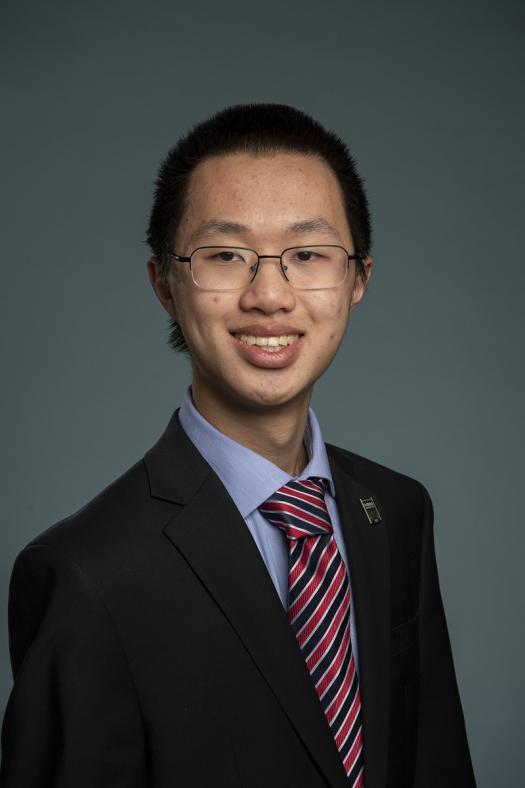
PHOTO COURTESY OF VINCENT HUANG
Which scientist – alive or deceased – would you want to solve scientific mysteries with and why?
I would love to solve scientific mysteries with Richard Feynman. I’ve read several books by him, including Surely You’re Joking, Mr. Feynman!, and he has the greatest sense of humor out of any scientist I’ve ever known. For instance, Mr. Feynman would often play pranks while working on the Manhattan Project, picking locks and cracking insecure safes containing classified information. In addition, Mr. Feynman had an incredible ability to turn complicated concepts like the interactions of subatomic particles into simple diagrams and pictures. Because of his massive intellect and playful nature, I think I would have a great time solving scientific mysteries with Mr. Feynman.
What would you invent if you had all the money in the world?
If I had all the money in the world, I would invent robots to clean space debris from the vicinity of Earth. There are currently hundreds of thousands of pieces of debris orbiting Earth—for example, pieces of old rockets and inactive satellites. Most of these objects are fairly small, but they orbit Earth at such high speeds that if a spacecraft collided with one, it could cause serious damage to the spacecraft. Some scientists think we’re at a “critical point” where there’s so much space junk that we might soon not be able to send any more satellites into orbit or any more spacecraft beyond Earth. For this reason, I’d invent a swarm of robots to collect all this debris and eliminate it by incinerating everything, for example, or by collecting the pieces and dropping them back into the Earth.
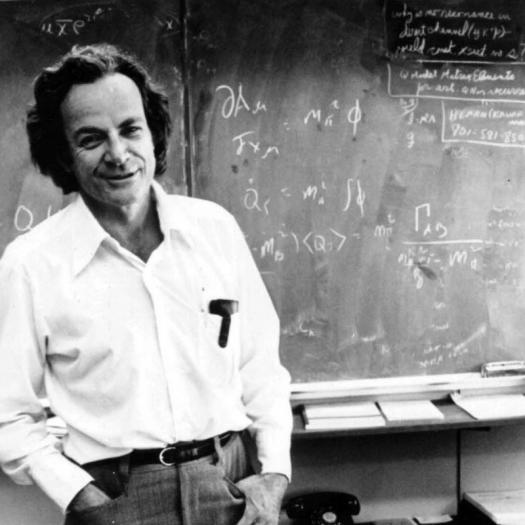
PHOTO COURTESY OF WIKICOMMONS
What would you like to be most renowned for?
I would like to be most renowned for finding ways to bring high-level and abstract ideas from mathematics into the public sphere. That could mean a variety of things—for example, finding ways to present or teach difficult math to the public, or using math to solve real-world problems.
What would you say in order to inspire the next generation of scientists?
One of the most famous mathematicians in the past century is John von Neumann, who was known to be able to multiply 8-digit numbers mentally as a child. However, even von Neumann couldn’t multiply 20-digit numbers mentally. Why is this important? Well, anyone who’s learned to multiply can multiply 20-digit numbers manually—all they need is scratch paper and a lot of patience! Things that geniuses cannot do with sheer intellect, we can accomplish with tools and determination. That is why, even if none of us are as brilliant as Einstein or von Neumann, we should still pursue our love of science and hope to produce significant and lasting impacts in the world.
If you know amazing young scientists like Vincent who are interested in entering their original research projects in the 2020 Regeneron Science Talent Search, please sign up here.
